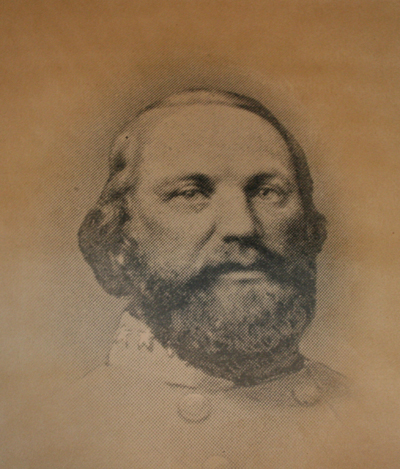Henry M. Shaw
(Currituck County)
Featured Character – 1861-1862

Henry M. Shaw
Courtesy
of Ray Etheridge
Henry M. Shaw epitomized the
generation of young Democrats that overwhelmingly supported secession in
1861, in spite of his northern origins. Born in Newport,
Rhode Island on November 20, 1817, Shaw’s merchant father, John Allen
Shaw, suffered severe losses in the War of 1812 due to British seizures
of his ships. His financial situation forced John
Allen Shaw to relocate to Tyrrell County, North Carolina where he worked in the mercantile and lumber business, and
eventually earned a living as an iterant Baptist
preacher. Gideon Marchant, the local physician in Currituck
County’s Indiantown section, sponsored Henry M. Shaw’s medical
education at the University of Pennsylvania. After
graduation, Shaw joined Marchant’s practice. The young
doctor’s social stature and political speeches turned him
into the star of Currituck County’s local Democratic Party.
Shaw beat local Whig John
Barnard in 1851 for the Second District seat in the North Carolina
Senate. In 1853 and 1857, Shaw won election to
Congress as a member of the House of Representatives. On both
occasions, his victories came by a paper-thin margin. As
the leading voice for secession in the
Albemarle’s finger counties, Shaw called for secession even before
Abraham Lincoln’s election. Elected as Currituck County’s
representative to the Secession Convention, Shaw enthusiastically voted
to take North Carolina out of the Union. Fellow secessionist
Governor John W. Ellis rewarded Shaw by appointing him as the colonel
of the Eighth North Carolina Infantry. Assuming command of
all the Confederate forces on Roanoke Island after sickness
incapacitated General Henry A. Wise, Shaw suffered the inglorious fate
of surrendering the island to General Ambrose Burnside. After
his parole and exchange, Shaw reassumed command of his
regiment. As part of Robert F. Hoke’s Division, the Eighth
North Carolina Infantry took part in the 1864 Eastern North Carolina
campaign. During the preliminary preparations for an attack
on New Bern, North Carolina, Shaw suffered a mortal wound at
Batchelor’s Creek on February 1, 1864. He lies buried in the
family cemetery near Shawboro in Currituck
County.